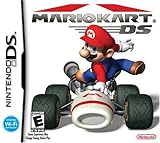
Why use video game cheats? That’s the age old question, isn’t it?
Play any game and it has rules as well as means of breaking those rules. Videogames are, of course, among the most complex games in existence, and contain suitably complex means of cheating. Whether it’s in-game codes, hacks, mods, code-altering devices, algorithms or simply resorting to a strategy guide, walkthrough or FAQ, games contain just as many means of breaking down the title and doing what you technically aren’t supposed to be doing, as there is for playing the game how it was meant to be played.
The interesting thing is that while the word “cheating” is a dirty word with negative connotations, the word itself is not so easily defined within the video game world. And among those who do cheat, there is a seemingly twisted honor granted to those who dedicate hours upon hours and days upon days of their lives to finding a way through a game’s defenses. Then there are other hackers and cheaters who are just flat out hated. Certain aspects of cheating are considered a fascinating and celebrated part of videogame culture, but drawing the line is not as easy as it seems.
 With the birth of home-console gaming came a handful of curious players who smashed buttons and flicked switches to see what their Atari 2600 games would give them for their efforts. The typical result was a lot of agonized beeps, but once in a while, there arose a glitch that would allow for increased firepower, unlimited lives, or another fruitful reward.
With the birth of home-console gaming came a handful of curious players who smashed buttons and flicked switches to see what their Atari 2600 games would give them for their efforts. The typical result was a lot of agonized beeps, but once in a while, there arose a glitch that would allow for increased firepower, unlimited lives, or another fruitful reward.
Atari’s programmers didn’t often leave behind intentional codes meant to help players on their crude journeys. However, they occasionally left behind other bits of forbidden information: their names. Silenced by Atari’s policies against crediting game staff for their work, programmers left behind Easter eggs to let players know who designed the game they were playing. The most famous example comes from Adventure for the 2600, a simple adventure (natch) game that is widely regarded as a significant precursor for the modern RPG genre. In the game there was a hidden secret, or Easter Egg, where players could move an “invisible” pixel to see coder Warren Robinett’s name appear on the screen.
View the first ever video game Easter Egg in this video:
With the discovery of this Easter Egg and other life-extending glitches, players had a reason to dig under the surface of games, take them apart, and, in some cases, exploit them for their own benefit.
The Nintendo Entertainment System brought forth complicated games that required more complicated testing. Game developers often included codes to make debugging easier. To do a thorough job, a tester often needs endless lives, infinite firepower, and invincibility.
 The most famous in-game cheat code is the Konami Code. Over 20 years old, the Konami Code was birthed by developer Kazuhisa Hashimoto when he found the Famicom port of Gradius to be too unforgiving during testing. By entering Up, Up, Down, Down, Left, Right, Left, Right, B, A, and Start, players could start the shooting game with a souped-up ship loaded with weapons. The code gained infamy in North America with the NES port of Contra; entering the code at the title screen before beginning the game would grant 30 lives, making the game significantly easier to beat.
The most famous in-game cheat code is the Konami Code. Over 20 years old, the Konami Code was birthed by developer Kazuhisa Hashimoto when he found the Famicom port of Gradius to be too unforgiving during testing. By entering Up, Up, Down, Down, Left, Right, Left, Right, B, A, and Start, players could start the shooting game with a souped-up ship loaded with weapons. The code gained infamy in North America with the NES port of Contra; entering the code at the title screen before beginning the game would grant 30 lives, making the game significantly easier to beat.
The code still yields results in dozens of modern Konami games, sometimes in the form of actual cheats and sometimes as a novelty. In Metal Gear Solid 3: Snake Eater, entering the code at the appearance of the Konami logo will unveil a special roster of names of the staff who worked on the opening title sequence.
 Completing a game with the aid of infinite lives — even if the means of achieving those lives were made available by the original programmers — is, by definition, cheating. Although the Konami code has become so infamous that not using it almost seems silly, even if your moral compass tells you that you should just try beating it the normal way. Of course, when you fail so many times at doing so, using the Konami Code is basically akin to setting the game on the Easy difficulty setting, something that didn’t exist back in the day. Interestingly enough, the coders of Contra 4 were clever enough to make it so that using the Konami Code repeatedly actually punishes the player. And besides, if you do beat Contra using the Konami Code, then you don’t get the pleasure of boasting about it.
Completing a game with the aid of infinite lives — even if the means of achieving those lives were made available by the original programmers — is, by definition, cheating. Although the Konami code has become so infamous that not using it almost seems silly, even if your moral compass tells you that you should just try beating it the normal way. Of course, when you fail so many times at doing so, using the Konami Code is basically akin to setting the game on the Easy difficulty setting, something that didn’t exist back in the day. Interestingly enough, the coders of Contra 4 were clever enough to make it so that using the Konami Code repeatedly actually punishes the player. And besides, if you do beat Contra using the Konami Code, then you don’t get the pleasure of boasting about it.
Accessible cheat codes quickly became an accepted presence in Nintendo games throughout the NES-era and beyond, but a new ethical dilemma arose when Galoob’s Game Genie hit the shelves. Suddenly, there was no end to how much easier (or harder) players could make their videogames. Of course, rarely did a player actually use it for that reason, instead they used the Game Genie to mess with a game’s code to make the impossible possible. A book of “codes,” strings of seemingly nonsensical letters and numbers, came with the unit and allowed gamers to do all kinds of crazy things such as making it possible to jump over the Flagpole in Super Mario Bros., to see what lay beyond (often only to be disappointed).
 Nintendo’s wrath against the Game Genie is well documented, but millions of units were sold for the NES, Game Boy, Game Gear, Super Nintendo, and Sega Genesis. Representatives for Nintendo appeared on newscasts about the device, claiming that it siphoned the challenge away from a game and made it “boring.” In reality, the Game Genie (and its successors, including Action Replay, GameShark, and Code Breaker) made games anything but boring.
Nintendo’s wrath against the Game Genie is well documented, but millions of units were sold for the NES, Game Boy, Game Gear, Super Nintendo, and Sega Genesis. Representatives for Nintendo appeared on newscasts about the device, claiming that it siphoned the challenge away from a game and made it “boring.” In reality, the Game Genie (and its successors, including Action Replay, GameShark, and Code Breaker) made games anything but boring.
It’s true that the Game Genie made generic cheats plentiful. But the Game Genie wasn’t like the Konami Code or other in-game tricks that simply doled out lives or energy. It could make characters act completely against the game’s design. Suddenly, Simon Belmont of Castlevania could move at a speed slower than a crawl, Mega Man’s world was doused in strange colors and sounds and, as mentioned above, Mario could jump high . . . insanely high.
 Game Genie broke down barriers beyond the typical challenges that dogged players through the game. Using it was doubtlessly cheating, but even simple cheats could open up new worlds. Few kids had the skill or patience to find out that the rescued kings in Super Mario Bros. 3 say different things to Mario if he manages to keep his powered-up suits through his battles with Bowser’s children. And using the Hammer Bros. suit to knock Bowser off his perch is unforgettable, even if it’s accomplished by illegitimate means.
Game Genie broke down barriers beyond the typical challenges that dogged players through the game. Using it was doubtlessly cheating, but even simple cheats could open up new worlds. Few kids had the skill or patience to find out that the rescued kings in Super Mario Bros. 3 say different things to Mario if he manages to keep his powered-up suits through his battles with Bowser’s children. And using the Hammer Bros. suit to knock Bowser off his perch is unforgettable, even if it’s accomplished by illegitimate means.
Current NES and SNES emulators usually include a Game Genie function, so the codes are always in demand. Having moved far beyond long jumps and infinite power-ups, Game Genie codes are often used to access unused data in nearly forgotten games. The long-lived Game Genie Code Creators Club contains an enormous database. And let’s not forget the whole Grand Theft Auto: San Andreas Hot Coffee scandal . . .
One of the earliest lessons grown-ups try to teach children is that cheating is wrong. But there’s no denying that some means of cheating in videogames, such as employing the Game Genie, can yield some pretty cool results.
So is there a definitive moment when cheating in videogames becomes absolutely, undeniably wrong?
 Allison Mulattieri, a gamer from Boston, has a simple answer that most players can probably agree on. “I feel cheating is OK when it’s a personal gaming experience,” she says. “If it’s your game, and your game alone, then you’re free to do with it whatever you want. However, when your gaming experience crosses over to involve others, that’s when I feel that cheating becomes a problem.” Using strategy guides and the enormous database of walkthroughs and cheats at GameFAQs, for example, is something that a player might resort to when every other option has been exhausted. Matt Simonds, who likes to find every trinket that game designers include in games, thinks that it’s fair to break out a FAQ after fruitless hours of searching. “I usually try once [without a guide] and get everything I can find. After that, I have no qualms about being handed a strategy guide.”
Allison Mulattieri, a gamer from Boston, has a simple answer that most players can probably agree on. “I feel cheating is OK when it’s a personal gaming experience,” she says. “If it’s your game, and your game alone, then you’re free to do with it whatever you want. However, when your gaming experience crosses over to involve others, that’s when I feel that cheating becomes a problem.” Using strategy guides and the enormous database of walkthroughs and cheats at GameFAQs, for example, is something that a player might resort to when every other option has been exhausted. Matt Simonds, who likes to find every trinket that game designers include in games, thinks that it’s fair to break out a FAQ after fruitless hours of searching. “I usually try once [without a guide] and get everything I can find. After that, I have no qualms about being handed a strategy guide.”
Ultimately, the choice to use a FAQ is a personal one. Depending on what point the player decides to do or accomplish within his game, and what kind of enjoyment he intends to get out of it. So in that sense, the definition of “cheating” might be a little fuzzy. Because while it’s fun to go through and play games the “real way” for one type of gamer, it’s not fun for another.
But even acts such as camping at spawn points in multiplayer deathmatches is subject to debates over what’s considered cheating in videogames. Can a player be blamed for doing what’s needed to survive? I mean survival is the game’s key goal, right? It’s tricky to say, but unlike the exploitation of the Game Genie, there’s no celebrated nostalgia attached to the debate. The only things gamers earn from camping are a questionably inflated score and a reputation as being a jerk.
 Granted, some soldiers who are desperate to win can get amusingly creative. Jenny Son, a Counter-Strike fan from Baltimore, recalls one particularly colorful means of cheating that plagues the game. “There are personal markings in Counter-Strike called ‘sprays.’ As long as it’s a still image, you can make it whatever you want. Sometimes you see lolcats, and sometimes you see porn. So when someone stops to look at the naked lady painted on the wall, someone else comes up and knifes them.”
Granted, some soldiers who are desperate to win can get amusingly creative. Jenny Son, a Counter-Strike fan from Baltimore, recalls one particularly colorful means of cheating that plagues the game. “There are personal markings in Counter-Strike called ‘sprays.’ As long as it’s a still image, you can make it whatever you want. Sometimes you see lolcats, and sometimes you see porn. So when someone stops to look at the naked lady painted on the wall, someone else comes up and knifes them.”
Multiplayer games are especially subject to cheaters. Moderators can patrol the games to make sure that everyone plays fairly, but it’s simply not possible to keep an eye on everyone. There are recorded instances of cheating in organized games and sports, but the numbers don’t touch the disregard for authority and fair play that you often find in online games.
And no game genre has earned a reputation for cheaters more than massively multiplayer online RPGs (MMORPGs). With millions of subscribers inhabiting the fantasy worlds found in such games as World of WarCraft, Final Fantasy XI, and Age of Conan, there’s bound to be a certain percentage of players who want to make their pretend lives easier, or gain recognition. Despite the use of customizable avatars in MMORPGs, there’s undeniably a desire to be the best and own the best stuff, and it so happens that the road to glory is paved with an insufferable amount of level grinding.
“I once used a bot on Ragnarok Online,” admits one anonymous gamer from New York who got bored with grinding for experience and rare-item drops. “In Ragnarok Online, the amount of time needed to get to the next level rises really fast as you go up.”
 From needs come solutions. The Internet is filled with downloadable hacks, bots, and exploits that lurch around the battlefield, slay monsters, and collect loot automatically, leaving the player to sit back and do nothing. If a player is cunning and can avoid detection from moderators, they can create a godly-powerful character in little time.
From needs come solutions. The Internet is filled with downloadable hacks, bots, and exploits that lurch around the battlefield, slay monsters, and collect loot automatically, leaving the player to sit back and do nothing. If a player is cunning and can avoid detection from moderators, they can create a godly-powerful character in little time.
Nobody loves an unmanned bot. But how do you feel about real players who farm gold for the purposes of exchanging it for actual cash? Can that still be considered cheating?
MMORPG blogger Tobold takes an extensive look at cheating as it applies to MMORPGs. He references IGE (Internet Gaming Entertainment), a company that services the virtual economies of several MMORPGs by letting players buy in-game currency with credit cards. “IGE isn’t cheating, because they aren’t even playing,” he argues. “The farmers aren’t cheating as long as they aren’t using bots to farm. They are playing the game in a particular way but inside the rules of the game.”
Tobold does stress that “they aren’t playing nice, which makes them a nuisance,” but that in the case of a game like World of WarCraft, it’s really up to Blizzard, not the player, to define “cheating.” “In cases where selling virtual items is against the [end-user license agreement], they are in infringement of the EULA, and thus ‘illegal,’ and could rightfully get banned. But that is a breach of contract between them and Blizzard, not an issue of ‘cheating’ in the game and ethics.”
 Thesis papers can be written (and probably have been) on the endless arguments about what constitutes cheating in MMORPGs. But team-oriented games that are not associated with massive servers and millions of users are not immune to the endless debate. In fact, the most heated arguments can be blamed on the Mario Kart games, a franchise normally not associated with the blood and ire that it’s capable of drawing.
Thesis papers can be written (and probably have been) on the endless arguments about what constitutes cheating in MMORPGs. But team-oriented games that are not associated with massive servers and millions of users are not immune to the endless debate. In fact, the most heated arguments can be blamed on the Mario Kart games, a franchise normally not associated with the blood and ire that it’s capable of drawing.
Mario Kart DS is particularly capable of inspiring rage, as it was the first game to popularize the Mario Kart DS snaking trick. “Snaking” refers to how players can gain speed boosts by pressing Left and Right on the D-pad while sliding. Snaking refers to employing these boosts not just on curves but throughout the entire course.
How to “Snake” in Mario Kart DS Video Tutorial
Depending on whom you ask, “snakers” are either filthy cheaters or simply gamers who managed to master a skill, which is what any game requires of its players. If Nintendo programmed the game so that snaking is possible, can you blame anyone for using it to win?
And so the debate on cheating rages on, both in the real-world amongst groups of gamers, and among millions of posts in millions of message boards. But due to the fact that cheating is, for many, a moral issue, it’s not an issue that’s likely to go away anytime soon, nor will there ever be complete consensus as to whether cheating is wrong or right. Since everyone has their own opinions on what cheating is, it’s a debate that will forever be a part of our favorite past-time.
Quotes Via 1-Up
